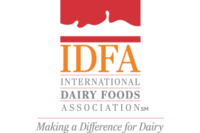Dairy farmers attending the World Dairy Expo in Madison, Wis., spoke out today about the dangers of a dairy supply management program included in the Dairy Security Act, part of the Farm Bill passed by the Senate and next up for floor debate and amendments by the House of Representatives, and the benefits of an alternative proposal that provides insurance without government interference in free markets.
The controversial provision in the Dairy Security Act is known as the Dairy Market Stabilization Program (DMSP). If dairy farmers want to participate in a margin, or risk insurance program, they would have to agree to participate in the DMSP. Under the DMSP, the government would periodically impose limits on milk production.
Farmers are beginning to learn the potential impacts of the program: If this program were law, dairy farmers would either have had to decrease production beginning back in May, or pay a stiff penalty, according to a press release issued on behalf of the Dairy Business Association, Green Bay, Wis. According to its website, the Dairy Business Association is an industry organization comprised of dairy producers, processors, corporate and allied industry supporters.
The International Dairy Foods Association, Washington, D.C., which represents dairy processors, also opposes the provision.
But the National Milk Producers Federation, Arlington, Va., favors the DSA. NMPF represents dairy farmers. Speaking about the 2008 Farm Bill that expired when Congress went on recess last month, NMPF president and CEO Jerry Kozak said, "Had the House leadership brought the bipartisan farm bill to the floor, I believe we could have passed a bill containing the Dairy Security Act. Instead, we are in uncharted waters, and one of our life rafts has disappeared.”
The NMPF press release stated, "Dairy farmers continue to suffer from high feed costs, and the other program intended to serve as a safety net – the dairy product price support program – was created years before feed costs started to escalate, Kozak said. That’s why NMPF has been urging Congress to pass the Dairy Security Act, which instead of focusing simply on milk prices, takes into account the margin between farm-level milk prices and feed costs.
“We strongly encourage our dairy farmer members to visit with their members of Congress during the pre-election recess to determine a path forward for the 2012 Farm Bill soon after the elections,” Kozak said. “We need a full, five-year bill to be passed in the House, sent to a conference committee, and approved before the end of the year.”Milk is the raw material used in dairy foods and beverages, and processors want to buy it as cheaply as possible
Dairy processors, in general, oppose rules that they say would keep milk prices artificailly high. Milk is the raw material used in dairy foods and beverages. Processors want to buy it as cheaply as possible.
The Wisconsin Dairy Business Association press release quotes Indiana farmer LuAnn Troxel who said, “My opposition to supply management stems from a fundamental belief in our free market system, as I think farmers should have the ability to make their own choices. I have a personal desire to have optimal expansion options to accommodate our sons' desires to join our dairy operation.”
Troxel and her husband milk 130 cows and operate a large animal veterinary practice from their home in northwest Indiana.
Gordon Speirs, a third-generation dairyman, along with his wife Cathy and sons Travis and Tyler, own and operate Shiloh Dairy LLC. The Speirs family moved their operations from Alberta, Canada to Brillion, Wis., in 2003. Shiloh Dairy is a 1,500 cow dairy and is in the process of expanding towards 2,100 cows over the next two years. In Canada, Gordon served as chairman of the local milk producers association and served on the provincial promotion board as well.
“I am opposed to supply management because once regulations are in place and found to be not working, the government will do their best to try to fix it with more regulations,” said Speirs. “This was my experience in Canada with the quota system and I expect it will not be different here.”
“Dairy farmers in Wisconsin could have been penalized up to $18,000 had this program been in effect now,” noted Jerry Meissner, president of the Board of Directors for the Wisconsin Dairy Business Association, and owner of Norm-E-Lane, Inc., a 2,000-cow operation near Chili, Wisconsin. “This is bad news for Wisconsin.”
A bipartisan compromise amendment proposed by Reps. Bob Goodlatte (R-VA) and David Scott (D-GA) would remove the stabilization provision, and also would provide dairy farmers with the ability to obtain margin insurance, with catastrophic coverage, as a risk management tool for times of low milk prices and high feed costs like we are saying now. The amendment is expected to be offered and voted upon when the full House considers the Farm Bill, likely in the lame duck session that will begin in November.
According to the Wisconsin Dairy Business Association, dairy producer organizations opposed to the supply management scheme include:
- California Dairies, Inc.
- Dairy Business Milk Marketing Cooperative
- Dairy Policy Action Coalition
- National All-Jersey, Inc.
- North East Dairy Producers Association, Inc.
- Wisconsin Dairy Business Association
- Minnesota Milk Producers
- Alliance Dairies (Florida)
- Board of Directors of Bongards’ Creameries (Minnesota)
- First District Association (Minnesota)
- High Desert Milk (Idaho)

